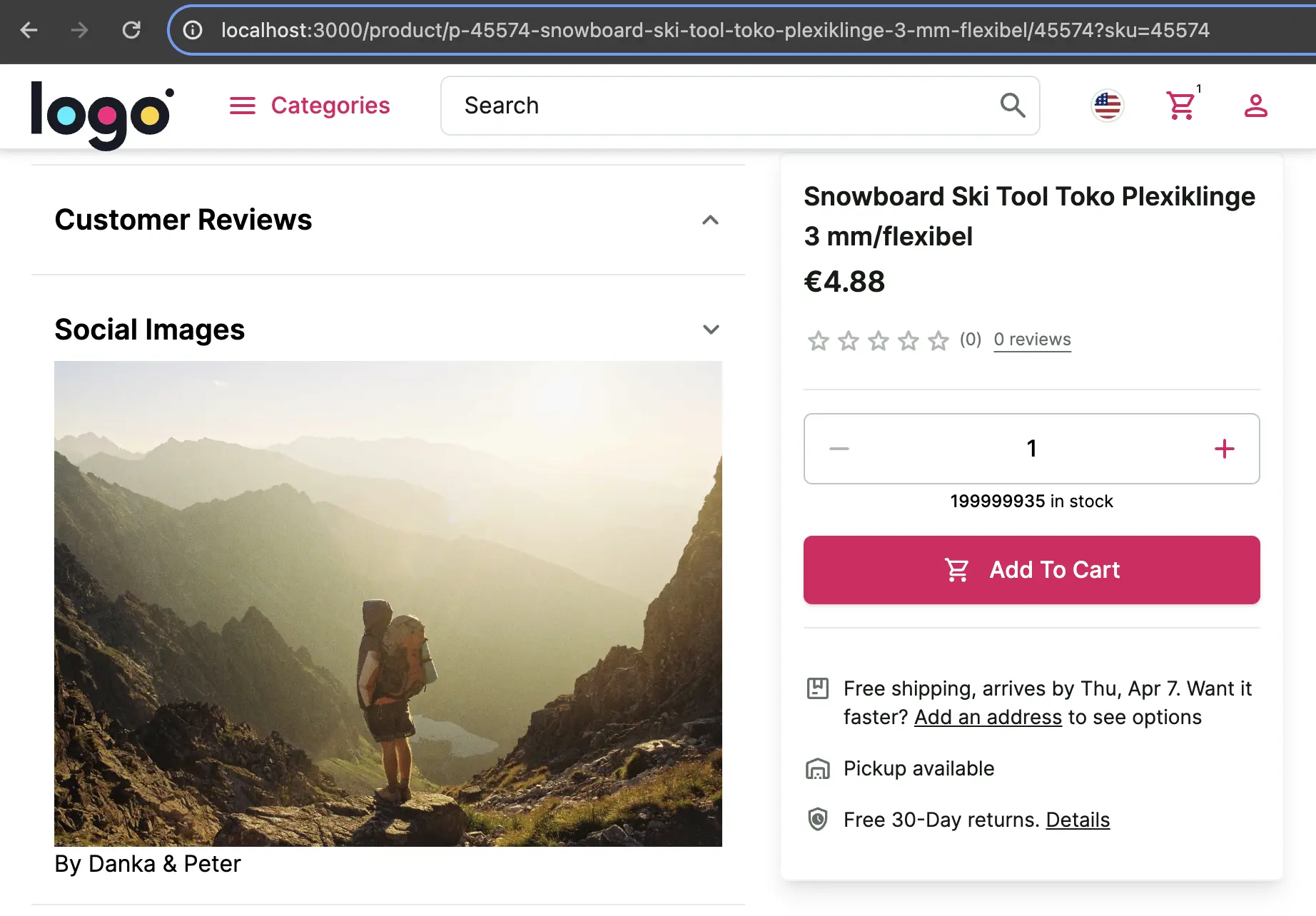Adding New API Methods
The Unified Data Model contains the most commonly used data for eCommerce backends, but there will be times when you need additional information, combine data from multiple sources, or create a new data structure.
In this guide, we will implement a mock of "social product images" feature - a feature where we display product images posted on social media. For the sake of simplicity we won't reach a real social network, we will use Lorem Picsum API to mock it. The result will look like this:

This guide is based on this documentation -> Creating New API Methods
- First, we need to create a custom method in the middleware.
Define input and output types of your method in apps/storefront-middleware/api/custom-methods/types.ts:
export interface SocialImagesArgs {
seed: string;
}
export interface SocialImagesResponse {
author: string;
download_url: string;
height: number;
id: string;
url: string;
width: number;
}
Then, define a method by creating apps/storefront-middleware/api/custom-methods/getSocialImages.ts file with the following content:
import type { SocialImagesArgs, SocialImagesResponse } from '@/api/custom-methods/types';
import { type IntegrationContext } from '@/types';
export async function getSocialImages(
context: IntegrationContext,
args: SocialImagesArgs,
): Promise<SocialImagesResponse> {
const image: SocialImagesResponse = (await (
await fetch(`https://picsum.photos/seed/${args.seed}/info`)
).json()) as SocialImagesResponse;
return image;
}
And export the method in the /api/custom-methods/index.ts file.
export * from "./getSocialImages";
Now, thanks to the SDK synchronization, the getSocialImages method will be available and typed under custom
namespace when you use the SDK in your Storefront.
// Storefront project
const { data } = sdk.customExtension.getSocialImages({/* args */});
- Now let's implement the UI for this feature.
Create SocialImages component under apps/storefront-unified-nextjs/components/social-images.tsx
import Image from 'next/image';
import { getSdk } from '@/sdk';
export default async function SocialImages({ productId }: { productId: string }) {
const sdk = await getSdk();
const socialImage = await sdk.customExtension.getSocialImages({ seed: productId });
return (
<div className="px-4">
<Image
alt="social image"
height={socialImage.height}
src={socialImage.download_url ?? ''}
unoptimized
width={socialImage.width}
/>
<p>By {socialImage.author}</p>
</div>
);
}
Add this component to Product Details Page. Open apps/storefront-unified-nextjs/app/[locale]/(default)/product/[slug]/[id]/page.tsx and use
AccordionItem component to add SocialImages component.
</ProductReviewsAccordion>
<Divider className="my-4" />
<AccordionItem
id="socialImages"
summary={
<h2 className="font-semibold typography-headline-5 md:typography-headline-2">Social Images</h2>
}
>
<SocialImages productId={product.id} />
</AccordionItem>
</AccordionProvider>
Finally, we have implemented a completely custom feature. You can find a complete project example in this repository: https://github.com/vsf-customer/extensibility-demo-v2 If you want to get access to it, contact our sales team.
Read more about adding new API methods here: https://docs.alokai.com/storefront/integration-and-setup/creating-new-api-methods